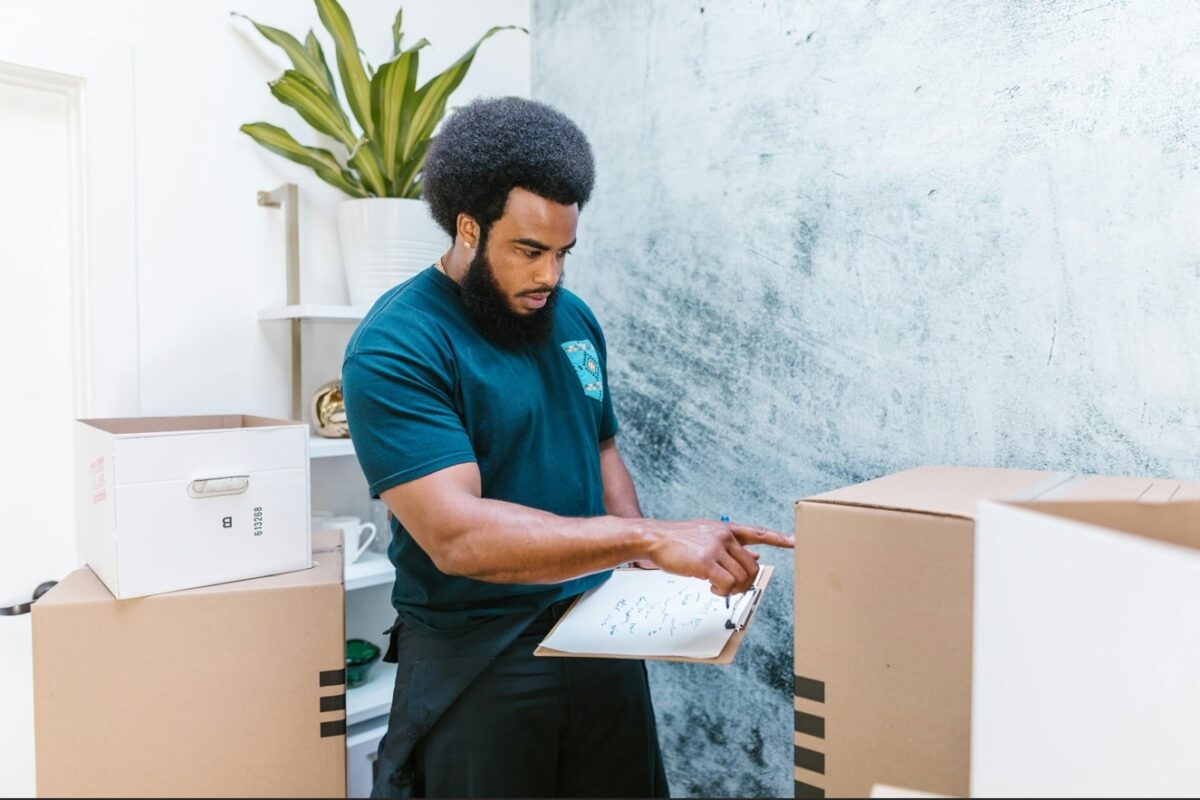When it comes to moving, you’ve probably heard more stressful stories than trouble-free ones. It always seems inevitable for there to be last minute hiccups or issues that seem completely unpreventable. But is that truly the case? You might not be able to plan for every contingency, but there are some predictable issues that can crop up during a move like misplaced boxes, damaged belongings, narrow doors and halls, and so on. By planning ahead, you can speed up the entire moving process and minimize potential risks.
Not sure where to start? Below are some useful steps to take before the movers arrive on your doorstep.
Declutter Your Home
Your very first step is to organize and declutter all of your belongings. Yes, even tiny items like hair ties, pens, and so on. The less stuff you bring with you, the less you’ll need to pack and unpack. Take a hard look at everything you own and separate it into three piles – keep, sell/donate, and trash. If you want some extra cash for your moving budget, consider holding a yard or garage sale to get rid of unwanted items and then donate whatever is left over. Depending on how much you’re getting rid of, you could make a couple hundred dollars.
Make an Inventory
While you’re decluttering, it’s a good idea to organize all of the items you plan on bringing with you. Your first order of business is to create a detailed inventory. Take pictures of everything as this will serve as proof of the contents and condition of your belongings. For electronics and appliances, list the serial number, brand, and type. Store the inventory and pictures in the cloud but also make sure to have a hard copy on hand during the move. That way if anything goes missing, you’ll have physical evidence.
Once your inventory is complete, share it with the NJ moving company and anyone else involved in the move. Make sure to send out an updated version if you add or remove anything.
Get Organized
Making an inventory is great, but you still need to organize and pack everything so that they are protected and easy to find. It might seem tedious, but you should set some time to:
- Pre-pack small items in a sealable bag. This is great for items like desk organizers, jewelry, small decorations, etc.
- Label your boxes – use color-codes or simply write what items are in the box. Make sure to write Fragile on boxes you want handled with extra care.
- Separate items – there are some items you want to have access to immediately and/or definitely don’t want lost like personal documents, valuables, your essentials like clothes, toiletries, medication, pet food, and small electronic devices. Keep these away from the other boxes so the movers don’t get confused
You should also measure all doors and hallways to make sure the boxes and furniture you have will fit comfortably through any and all entryways. You don’t want to back a big box and not be able to get it through the front door of your new home, do you?
Get Insurance
When you hire professional movers your belongings are automatically covered by the basic valuation coverage which covers you for $0.60 per pound per item. While this might be fine for basic things like your clothes, it doesn’t really provide much help for items that are expensive, but light like cameras, TVs, jewelry, etc. If you own a lot of high value items, consider springing for the full valuation from your NJ moving company. You will need to alert the movers of anything that is valued at over $100/pound, otherwise they cannot be held liable if it is damaged but not claimed.
You can also spring for third-party moving insurance. Your premium is based on the value and weight of the total items you want to insure, so it’s in your best interest to only cover the very expensive or irreplaceable items. Be forewarned that if you pack the items yourself and it gets damaged during the move, the moving company and/or insurance won’t pay out unless there’s obvious evidence of improper handling during the move.
Plan for Your Pets and Kids
Depending on how old your child is, it might be beneficial to have a friend or relative watch them during the moving process. You want them to stay away from all the commotion and tension that comes with moving day so that you and the NJ moving crew can focus on the task at hand. If you can’t find someone to help out, look for a babysitter or see if you might be able to have them wait in a separate room.
For your pets, put them in a kennel or cage away from all the noise. Many people lose their pets during a move since dogs and cats are prone to running away from unfamiliar people and loud noises. Keep them safe by putting them somewhere they can’t escape. Include their favorite toy or cushion as something familiar can help soothe their anxiety. And don’t forget to pack some weewee pads in case they end up urinating or defecating in their cage.
Prepare Your House for Movers
Sure, most moving companies will put down some supplies to prevent damage to your house, but it’s up to you to make sure your old and new house are clean and undamaged. This is especially true if you are moving between NJ apartments since you’ll have to worry about getting back your security deposit. Some small steps you can take include:
- Putting down doormats and plastic coverings over floors and carpets to prevent dirt buildup
- Wrapping banisters and corners with some bubble wrap or blankets.
- Cover stairs with anti-slip coating
- Protect door frames with foam pad dings or remove doors from hinges if necessary. Don’t forget to put the doors back up!
- Remove paintings, mirrors, and clocks from walls
Don’t forget to take pictures of your old place before the movers arrive. You want proof of the condition your apartment or home was in during move out so in case something gets damaged, you can show that you were not responsible. Don’t forget to do this when you move into your new place, too!
Think of the Moving Crew
Not all moves are strenuous, but if your move is expected to take more than four hours and/or you have a lot of bulky and heavy items to move, consider getting some snacks and water to replenish the movers’ energy levels. This is especially important if you’re moving during the summer! You should also make sure to leave some soap and disposable hand towels in your old and new home just in case someone needs to use it.
And don’t forget to take out some cash for tips. While tipping isn’t required, it’s always a good idea to show appreciation for a job well done, especially for something like moving. Add some extra dollars if the crew had to move very heavy items, walk up stairs, or navigate tight corridors.
Have a Stress-Free Moving Experience
While no move is easy, you can reduce potential issues by preparing in advance. Once you’re ready to move, make sure to give NJ Great Movers a call. We can help walk you through the process and provide a customized moving plan that fits your needs and budget.

